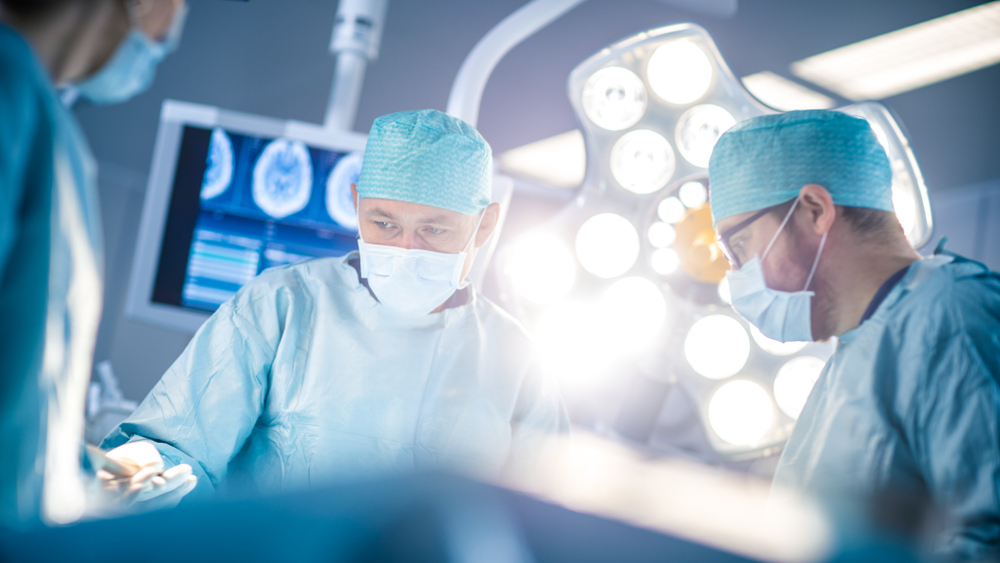
In January, the ABRET Neurodiagnostic Credentialing and Accreditation Board recognized SpecialtyCare’s Intraoperative Neuromonitoring (IONM) Training Program with formal Neurophysiologic Intraoperative Monitoring (NIOM) program status. This makes SpecialtyCare one of only two training programs, and the sole clinical services provider, to achieve this recognition. With approval as a recognized program, our surgical neurophysiology (SNI) trainees gain Pathway IV eligibility for ABRET’s Certification in Neurophysiologic Intraoperative Neuromonitoring (CNIM) testing.
ABRET recognition is an important milestone for our SNI training, and it reinforces our ability to meet the overarching goal of our program, which is to increase patient safety, improve patient outcomes, and reduce healthcare costs by providing surgeons and their teams with highly trained and certified surgical neurophysiologists.
In recent years, ABRET has shifted away from exclusive on-job training and increased emphasis on formalized training by requiring nationally recognized coursework for exam eligibility. Knowing that purely on-job training is seldom organized well enough to produce measurable outcomes, we too focus on formalized training and performance-based metrics that assure consistency in the quality of our graduates.
 We believe that great performance begins with great training, so we created a strong educational foundation and build upon that foundation systematically. The result has been a training program that differentiates us and, ultimately, differentiates the performance of our surgical neurophysiologists in the operating room.
We believe that great performance begins with great training, so we created a strong educational foundation and build upon that foundation systematically. The result has been a training program that differentiates us and, ultimately, differentiates the performance of our surgical neurophysiologists in the operating room.
Our program welcomes approximately 25 new students across four training cohorts each year. For consideration, candidates must have a bachelor’s degree and exhibit a commitment to core values, such as excellence, integrity, and customer service. To advance through the year-long program—which includes classroom learning, supervised clinical training, and eventually, indirect oversight—a trainee must complete structured learning stages and demonstrate clinical competency.
Beyond the fundamentals of neurophysiology, trainees learn critical thinking skills in differential diagnostics, are exposed to literature review activities, and participate in simulated OR communications, all of which are focused on development of clinical acumen. The breadth of our training and our dedicated CNIM test preparation have resulted in impressive first-attempt CNIM pass rates that far exceed the national average each year. This confirms what ABRET has now recognized—that our program provides substantial and effective preparation for both certification and high-quality patient care.
Under the guidance of Cheryl Wiggins, AuD, D.ABNM, CNIM, VP of Education and Clinical Performance for IONM, the education team collaborates with experts from our IONM Division and SpecialtyCare University to provide carefully designed academic and clinical training. My colleague, Kristina Young, BS, CNIM, Director of Clinical Performance for IONM, who became part of our organization with the Sentient acquisition in 2016, says, “Since the moment I joined the SpecialtyCare team of educators, it has been incredibly evident that SpecialtyCare pours its resources into this training program. It is far from a typical expedited program that pushes students to competency as quickly as possible.”
 As it turns out, our students give us—the trainers—just as much of a learning experience as we provide them. Each cohort triggers unique discussions based on new research, the latest quality metrics from our Medical Office, and the continuous improvement plans that we explore. Upon successful completion of training, the IONM graduates possess a sophisticated knowledge base in clinical neuroscience, sound technical competency, interpretive skills in monitoring and communication, and national board certification.
As it turns out, our students give us—the trainers—just as much of a learning experience as we provide them. Each cohort triggers unique discussions based on new research, the latest quality metrics from our Medical Office, and the continuous improvement plans that we explore. Upon successful completion of training, the IONM graduates possess a sophisticated knowledge base in clinical neuroscience, sound technical competency, interpretive skills in monitoring and communication, and national board certification.
Occasionally I ask our graduates to reflect on their training and early experiences as surgical neurophysiologists. Their stories serve not only as valuable teaching tools for our current students but also as a source of true inspiration. I’ve included a few excerpts below, lightly edited for length.
Carly Frazier, Class of March 2015
The SpecialtyCare training program has been vital to my success as a surgical neurophysiologist. The team of educators provided excellent resources both clinically and didactically to instill in us the core concepts of intraoperative monitoring. Spending time in the operating room and classroom allowed us to apply these concepts and become more independent as clinicians. When it came time to take the CNIM, I felt well prepared and confident that I could pass… and I did! Now, with over two years of experience, that confidence in my knowledge base has allowed me to play an integral role in patient care.
Austin Hatley, Class July 2016
My medical training and experience throughout the program have allowed me to pursue more specialized interests, specifically pediatric scoliosis. Speaking with a young patient pre-operatively, I asked, “What do you want to be when you grow up?” The response caught me off guard, “I want to be a surgeon.” Surgery was all this child had ever known, and being a part of their healthcare team left me with an overwhelming sense of purpose and indebtedness. The impact we have on a daily basis is often concealed; it is these moments that drive me to advance my knowledge and skill set. SpecialtyCare provides me with the latest research, continual learning, and advanced opportunities that allow me to execute optimal care.
Shakira Tassone, Class July 2016
The training not only helped me acquire an extensive amount of knowledge, but it helped me to become a better clinician. You were immediately taught, “The patient comes first.” This is something that resonates deeply with me, so the fact that SpecialtyCare holds that as a core value is something special. In all that I do, that one concept always remains in my mind.
These certified clinicians, along with hundreds of other surgical neurophysiologists at SpecialtyCare, make patients safer by helping surgeons avoid nerve and muscle injury during surgery, which translates to long-term health benefits and significant cost savings for both patients and hospitals. I am enormously proud of the men and women who have stepped up to the challenge of our rigorous training program and are now applying their skills and dedication to this vital clinical service. Not only do they demonstrate our ability to meet nationally recognized standards and exemplify our commitment to clinical excellence, they make a real difference in the quality of people’s lives.
LEARN MORE ABOUT IONM
###
If you are interested in applying to our IONM Training Program, please visit the Careers section of our website to submit your application.



Comments are closed.